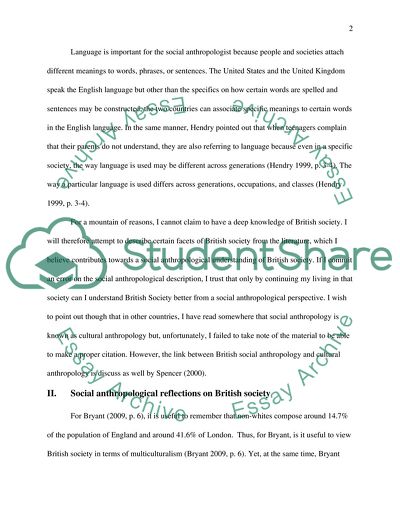Cite this document
(Social Anthropological Reflections on British Society Essay - 1, n.d.)
Social Anthropological Reflections on British Society Essay - 1. https://studentshare.org/history/1746547-how-useful-is-social-anthropology-for-an-overseas-student-in-looking-at-and-understanding-modern-british-society
Social Anthropological Reflections on British Society Essay - 1. https://studentshare.org/history/1746547-how-useful-is-social-anthropology-for-an-overseas-student-in-looking-at-and-understanding-modern-british-society
(Social Anthropological Reflections on British Society Essay - 1)
Social Anthropological Reflections on British Society Essay - 1. https://studentshare.org/history/1746547-how-useful-is-social-anthropology-for-an-overseas-student-in-looking-at-and-understanding-modern-british-society.
Social Anthropological Reflections on British Society Essay - 1. https://studentshare.org/history/1746547-how-useful-is-social-anthropology-for-an-overseas-student-in-looking-at-and-understanding-modern-british-society.
“Social Anthropological Reflections on British Society Essay - 1”. https://studentshare.org/history/1746547-how-useful-is-social-anthropology-for-an-overseas-student-in-looking-at-and-understanding-modern-british-society.


